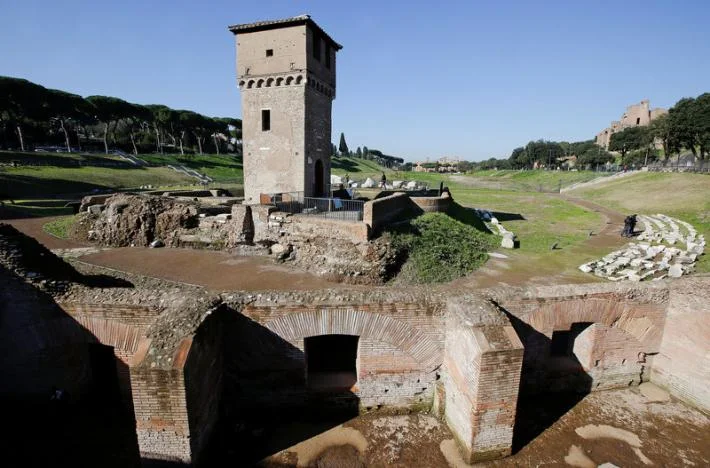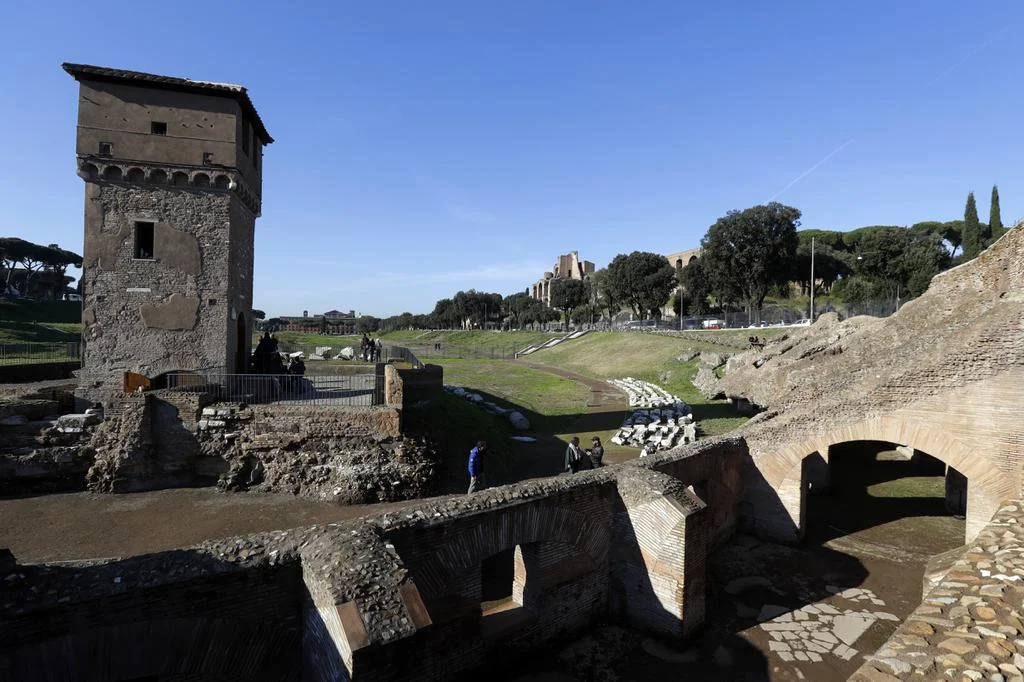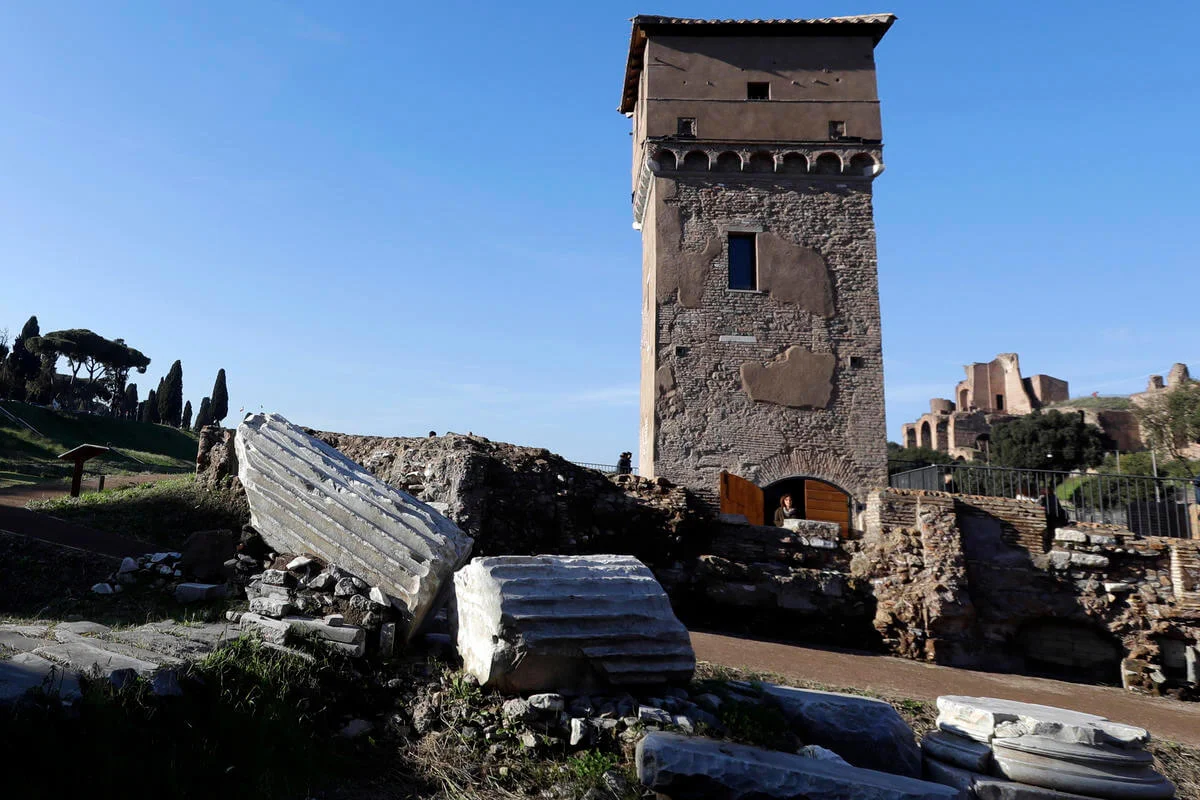Rome unveiled a restored archaeological site at the Circus Maximus on Wednesday, showing off the spruced-up ruins of one of the ancient world's biggest public entertainment venues.

[Credit: Reuters/Max Rossi]
The 600-metre grassy expanse shows few signs of the chariot races that once drew hundreds of thousands of spectators, and what remains of its ancient stands have been partially closed off by wire fences and hoarding for years.
But from Nov. 17, people will be able to visit the arched walkways where senators and plebeians once gathered. Archaeologists have identified ancient shops and a cobbled road has been excavated.

[Credit: AP/Gregorio Borgia]
"We can imagine bustling activity around the semicircle which we have restored and made accessible to the people, with crowds gathering around these structures," said Claudio Parisi Presicce, Rome's superintendent for cultural heritage.
Presicce said the Circus Maximus - or "big circus" - had been the venue for important events throughout the city's history, including being where a devastating fire started during Emperor Nero's reign.

[Credit: AP/Gregorio Borgia]
One of the most infamous legends is that Rome's founder Romulus brought to the site women from the Sabine tribe, whom he abducted so they would marry Roman men.
"This is where the famous "Rape of the Sabines" took place, which led to the formation of the first Roman families who then went on to build this city," Presicce said.
Source: Reuters [November 16, 2016]